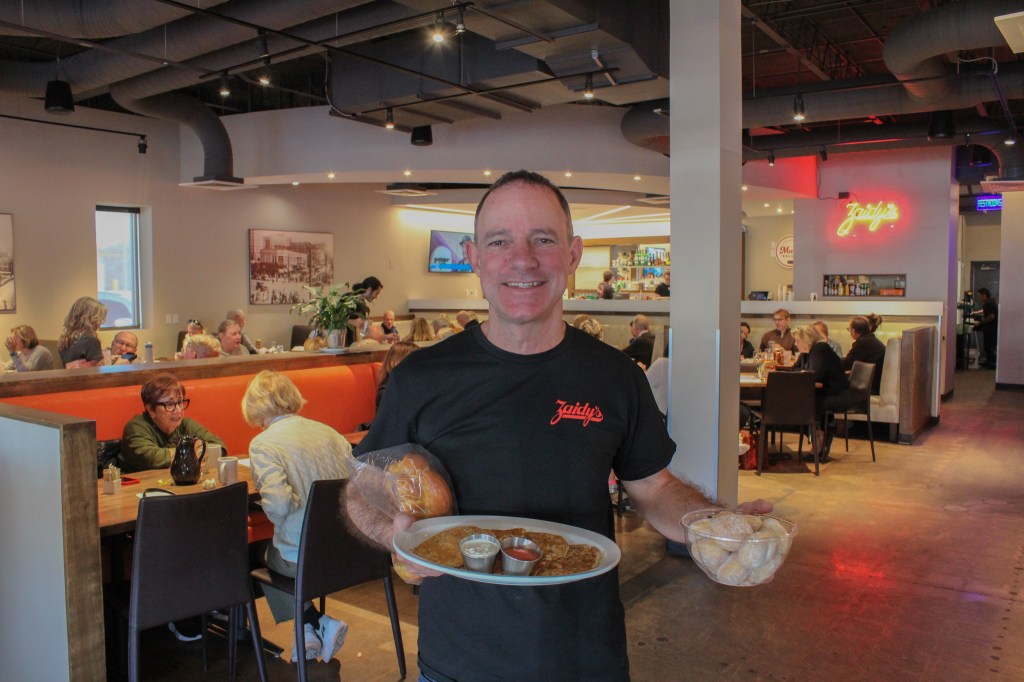When Joel Appel bought Zaidy’s Deli & Bakery, he didn’t expect it to be so difficult.
When he reopened the Jewish cafe’s doors in 2022, the minimum wage in Denver was $15.87.
On January 1, that amount will be $18.81.
According to a survey by the Colorado Restaurant Association, the increase will cost Denver restaurants an average of more than $51,000 next year.
“It just makes it very, very difficult,” said Appel, who took over Zaidy’s after it closed in 2020. “Any company that gets the job done and makes a small profit has to worry about when things happen in the world because they just don’t have a cushion.”
While the pay increase — a 65 percent increase from 2019 — is an issue for most Denver eateries, the real problem comes down to the employees who are tipped, Appel said. Their hourly minimum is $15.79 with the $3.02 “tip credit” as it is commonly referred to. By comparison, in New York City, tipped workers earn a minimum wage of $5.35.
That puts the average front-of-house worker at about $37 an hour with tips, according to Sonia Riggs, president of the Colorado Restaurant Association. That’s a far cry from the roughly $23 to $25 an hour that unpaid, back-of-house employees earn, she said.
From 2019 to 2022, Denver increased its minimum wage from $11.10 per hour to $15.87 to “catch up” with the modern cost of living. Since then, the figure has been adjusted every year based on a variant of the Consumer Price Index, a commonly used inflation measure.
“We all support the idea that people deserve more and that people deserve a living wage, but I don’t think people understand who (the city) is also giving the raise. They aim for A and hit B,” Appel said.
Appel said he is exploring ways to add kitchen workers to the tip pool, such as having them staff the cash register at the Zaidy’s counter. But finding a legal way to do so has been a challenge, he said, so he is still weighing his options.
He has also considered raising prices substantially, but “that seems terrible and people would stop coming,” he said.
“We are trying to raise living standards, but it is a complicated issue. One-size-fits-all is always dangerous, especially in times like these,” he said. “This is the only thing that is not driven by the market. When the price of food rises, there are three other vendors waiting to slip in and compete. That is not the case if the city tells us that we have to pay our frontline staff more.”
Appel and his father founded cleaning product titan Orange Glo International, the parent company of Oxiclean, Kaboom and Orange Glo. They sold the company in 2006 for $365 million, and Appel has since been an angel investor in several companies, launching cleaning, ed-tech and food products.
Because of his other job and the deli’s nearly 40-year reputation, Zaidy’s will endure, he said. But other restaurants that toe the line of profitability may not be so lucky.
“You just don’t have any margin to make the world happen,” he said. “Most cash-strapped restaurant operators can’t afford for this kind of thing to happen, and consumers are staying away this year, as is a drop in customers in the high single digits. If that continues or gets worse, it will be bad news for Denver.”
For all these reasons, Appel has no plans to open another Mile High location anytime soon.
“I don’t know if I want to say never, but there should be a hundred factors lined up that look perfect,” he said. “Why would I do that now?”
2024 was a tough year for all Colorado restaurants, Riggs said, and Denver was responsible for more than 80 percent of the closures. The number of restaurants in the state fell 4.5 percent between summer 2023 and summer 2024, she said — the first time since the pandemic that overall numbers have shrunk.
“How can restaurants be expected to stay in business when all operating costs have increased since 2019 and cannot keep up with menu prices without customers complaining and eating out less often?” Riggs asked. “It’s simply not sustainable.”
They and the association have and will continue to lobby the city and state governments to change the policy next year. But if these efforts are not successful, Appel says there is only one way to help strengthen the scene.
“Eat out at Denver’s independent restaurants,” he said. “The chains have systems, marketing and purchasing power that the rest of us cannot match.”
Get more business news by signing up for our Economy Now newsletter.

